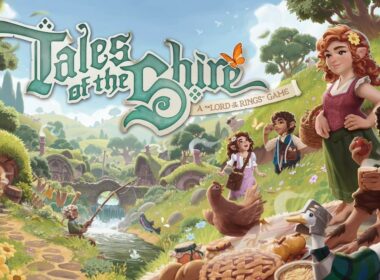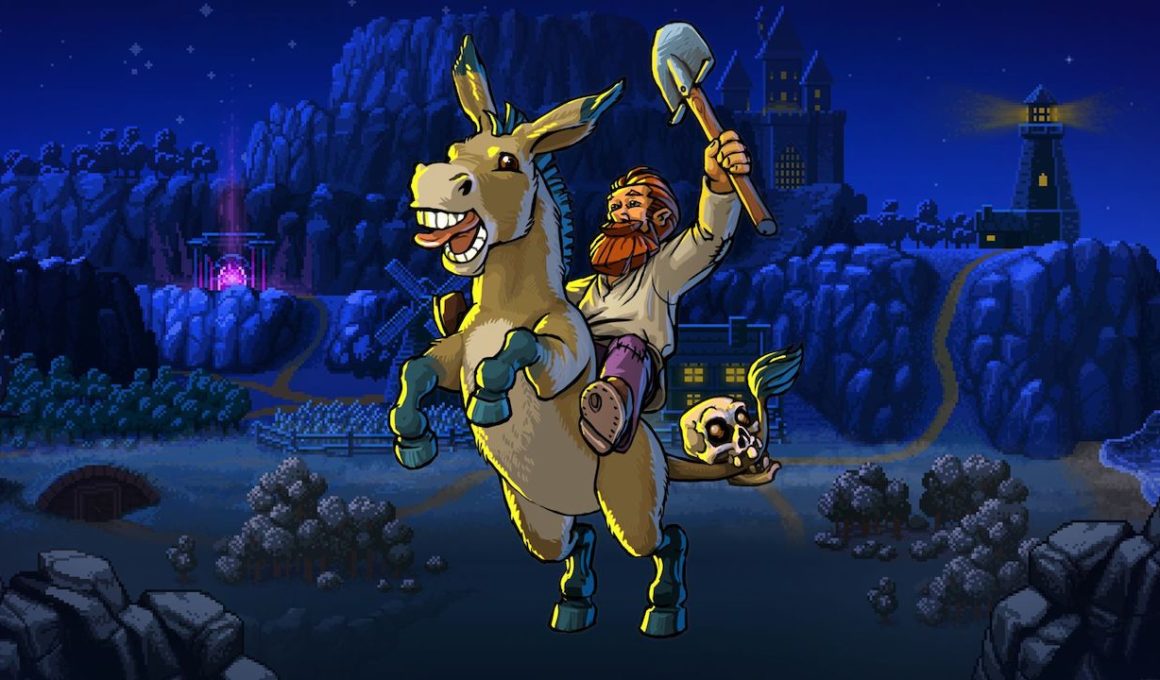Weary from work and grabbing groceries is how you meet Graveyard Keeper’s protagonist. One moment he’s pining after a loved one, awaiting his return home, and in the next the sound of a car crash causes a sudden fade to black. Perspective shifts and a mysterious shadowy figure informs our avatar that he’s “turned a page” in his life and that he can return home if he lives as a good graveyard keeper. What that means isn’t at all clear, as you’re instructed to dig up an eerily familiar-sounding assistant named Gerry for further instructions. And so begins our hero’s grim career as the lone graveyard keeper of a small, medieval village.
In the simplest of terms, Graveyard Keeper is a top-down, building and farming game, very much in the same vein as the staggeringly popular Stardew Valley or progenitor Harvest Moon series – albeit with a rather macabre twist. The main addition here is the grim job of interring corpses and ensuring that their gravesites are well kept and as prestigious as possible.
Gerry, the aforementioned assistant, is a talking skull with a lot of holes in his memory, but just enough sense left to teach you some basics. After meeting the rather righteous, politically motivated donkey that hauls bodies to your church and graveyard, you’ll be dragging his offloaded and unfortunate luggage into the morgue and dissecting it. Gerry teaches how to remove blood and fat before burying the body, in turn earning a burial certificate to sell to the local pub landlord. There’s a strange economy at work in these lands, that’s for sure.
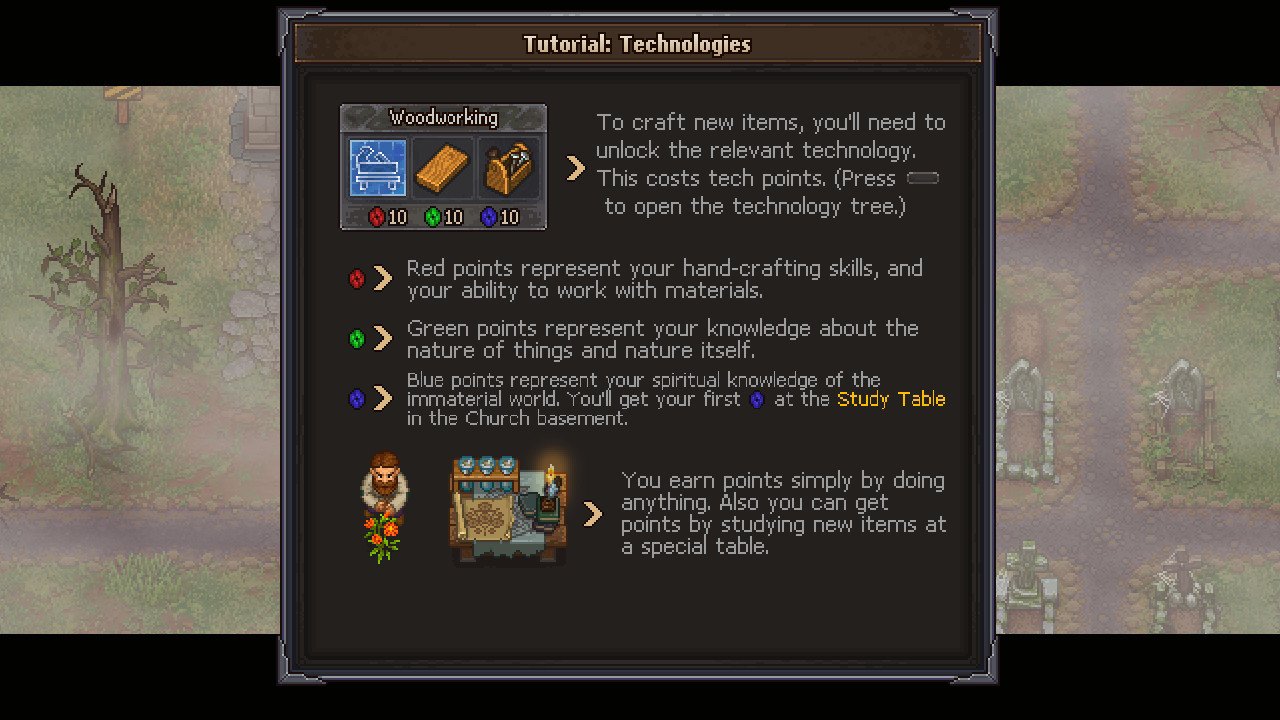
It’s at this point that you’re truly free to wander and find out how expansive the lands you’re trapped within are. There are a lot of locations to become familiar with, ranging from a hub-like village full of vendors and quest givers, through to dense forest, a disused quarry and even a hill upon which witches are burnt at the stake. I did mention the macabre twist, right?
The people of Graveyard Keeper are often rather grim or dour in their tone and dialogue, with an undercurrent of almost mocking snideness to their instructions. The inquisitor seems to take great pleasure in meting out his justice, just as a traveling merchant takes pride in giving you a loan and using you to make a profit with zero work. Tasks given often take quite some time too, given the often extensive crafting requirements of some items and the technology research required to begin production at all, but more on that in a moment.
Given Graveyard Keeper’s inspirations, it should be no surprise to read that your character has an overall energy gauge to manage each day, that sleep and food restore energy and that it’s spent on performing tasks throughout the day. What’s unfortunate about the game is the approach taken to balancing this aspect of play, as getting things done takes far too long and progress takes an age as a result. The issue stems from the game layering too many time and resource-consuming elements on top of each other, each costing large amounts of energy and again with too little a sense of progress given as reward. This isn’t to say that there aren’t time-saving technologies and ways to speed things up later in the game as you progress, but getting to these things and setting them up will take so long that it’s likely to put many off before they get there.
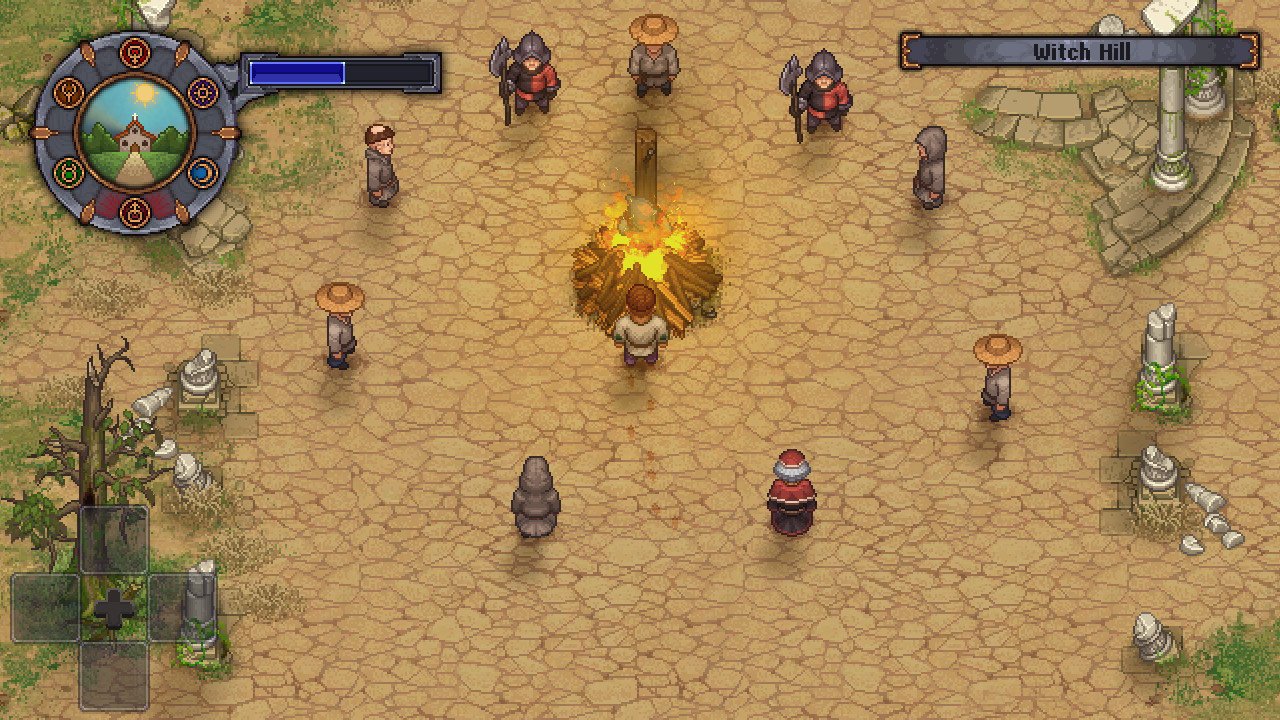
As an example of the way Graveyard Keeper needlessly extends everything you do, here’s what powering a furnace and smelting iron requires. First up, you’ll need firewood. Firewood requires wood billet which is made of logs, so go chop down a tree and carry a log from it to your home and place it in your log storage. You’ll probably want a few of those so chop some more trees and carry them back. Now you’re out of energy and need to sleep. That’s about five minutes of your time and a lot of standing around holding the Y button to chop. Now those logs need to be made into billet, so go to your sawhorse and saw wood. You’re out of energy again and spent the last five minutes holding the Y button and watching the same sawing animation. That billet needs to be made into firewood, so head out to your chopping block and cut wood till you’re out of energy again. Sleep again and take that firewood to the furnace. Another five minutes. Each piece of billet makes four firewood, each firewood gives thirty fuel and each piece of iron ore costs thirty fuel to smelt. Oh, and it takes two and a half minutes to smelt each piece once you’ve gone out and mined the ore, of course. It is an undeniably tedious process to watch the same animations play out and to do small circuits between crafting stations and resource gathering areas, to say the least.
Compounding the problem with crafting is the way technology research works. There are three kinds of research points, each earned from different activities. Resource gathering and combat garner green and red research points, while blue points only come from using a particular table in the church basement to study each and every item in the game. The first two types of points come rather quickly, but earning the blue points is a punishing slog because, once again, there’s just too much contrivance to wade through.
Each item you study will demand an amount of faith that can only be earned once per week by performing a sermon in the church at the center of your graveyard. It’ll also require an amount of science points that are earned by deconstructing notes you’ve made. Those notes? Made of stories collected from other characters after getting an easily missed perk, combined with paper and a pen and ink. The pen and ink only have a few uses each, cost a lot and aren’t easy to make yourself either. Resources to make resources to make more resources to eventually make into technology points. It’s just punishingly slow and horribly unrewarding to progress.
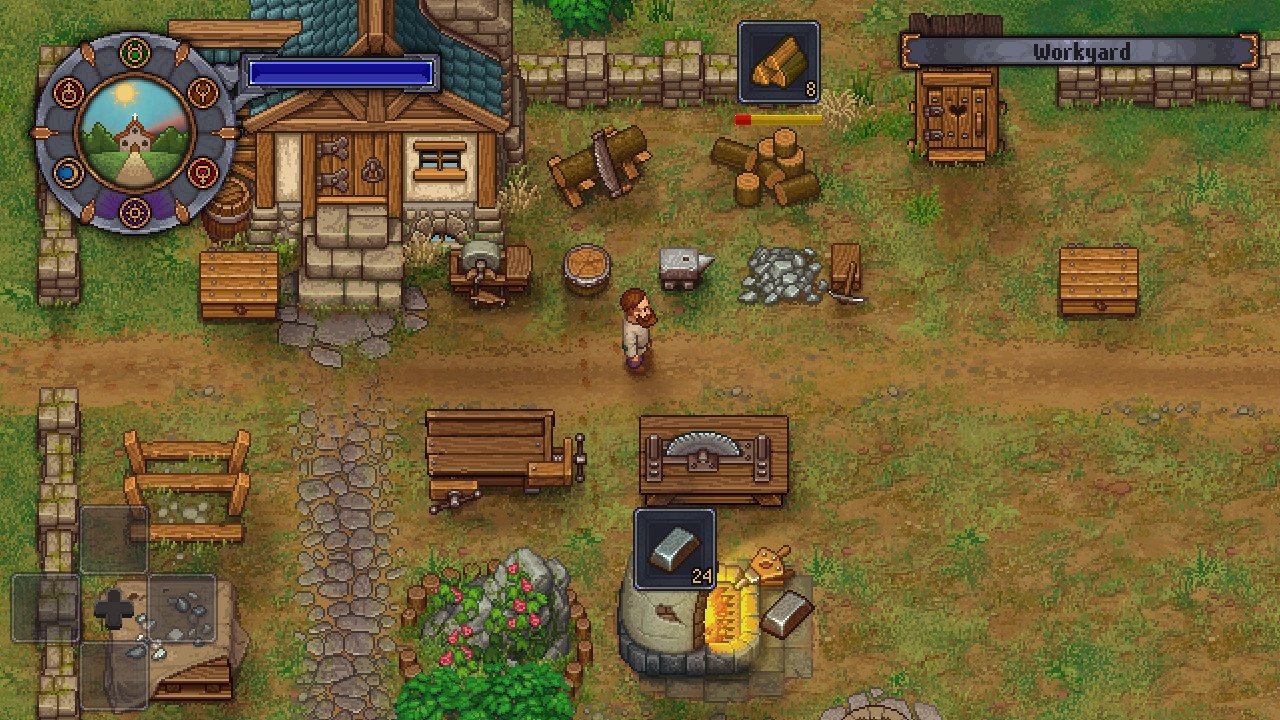
You can, of course, buy a lot of the resources you need to advance at a high price in the village, so you could, in theory, become nothing more than a Stardew style farmer, craft food items and sell them to afford everything you need, but the time taken to do that alongside the lack of reward in terms of events and character interaction isn’t likely to appeal to many that know the genre well and even fewer who might be tempted to try this game as their first go at managing time and resources for amusement.
The few events and conversations that I did trigger all had that previously mentioned tone of mockery and don’t exactly give the warm feelings and sense of how a community can work together that Stardew Valley or Harvest Moon do. More so, they’re not funny or particularly interesting takes on character archetypes, many will already be familiar with ideas like amoral priests or burly woodsmen. The tone struck by the game does so little to motivate and almost everything to subvert expectation in the worst possible way by promising more than it gives, right down to one questline promising access to a nearby town coming to a particularly disappointing and borderline insulting conclusion.
All of this feels like a shame to me, that a faster-paced version of this idea, unladen by the intent to give the sense of hopeless confusion that the developer sets the stage with would appeal far more. That a combination of gallows humor, absurd elements in the crafting system and more respect for a player’s time would make for a satisfying version of this game. That by perhaps aiming for something tonally akin to classic evil-em-ups like Overlord or Dungeon Keeper would have helped amuse enough to keep players on the hook. Some changes could be made to crafting via patches, such as reducing the energy cost of some tasks or removing steps from some crafting tasks, but this long after release it’s safe to say that the game is as the developers intended and won’t be getting any major balance changes.
In conclusion, visually, the pixel art is wonderful and full of character and the music fits the downbeat tone at work, but the gameplay is too slow to be gripping while the story isn’t pacey or unique enough to inspire wonder at what’s to come, especially because the conceit of the game’s plot seems pretty obvious from the outset. We did hear a car crash before waking up outside reality, after all…
Version Tested: Nintendo Switch
Review copy provided by tinyBuild



